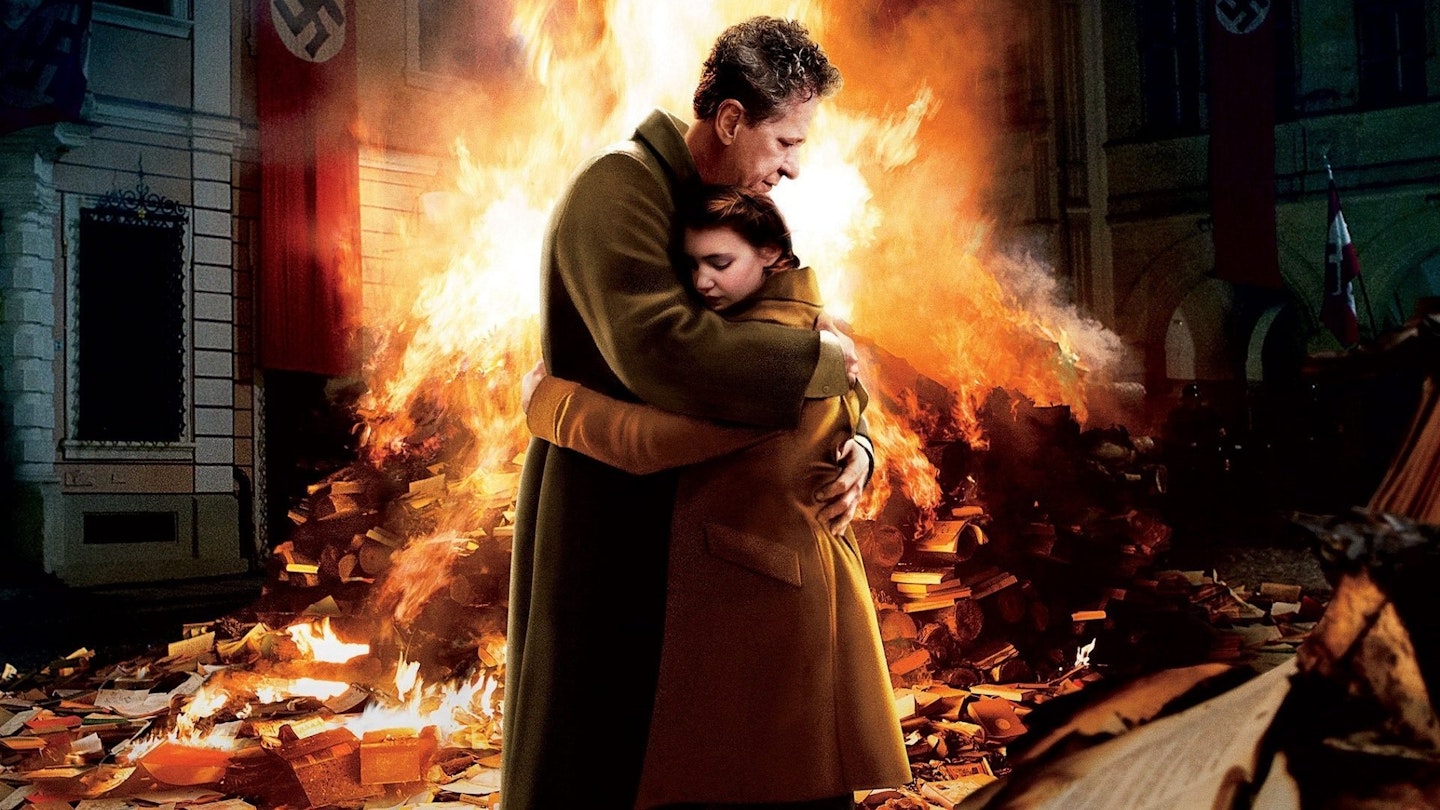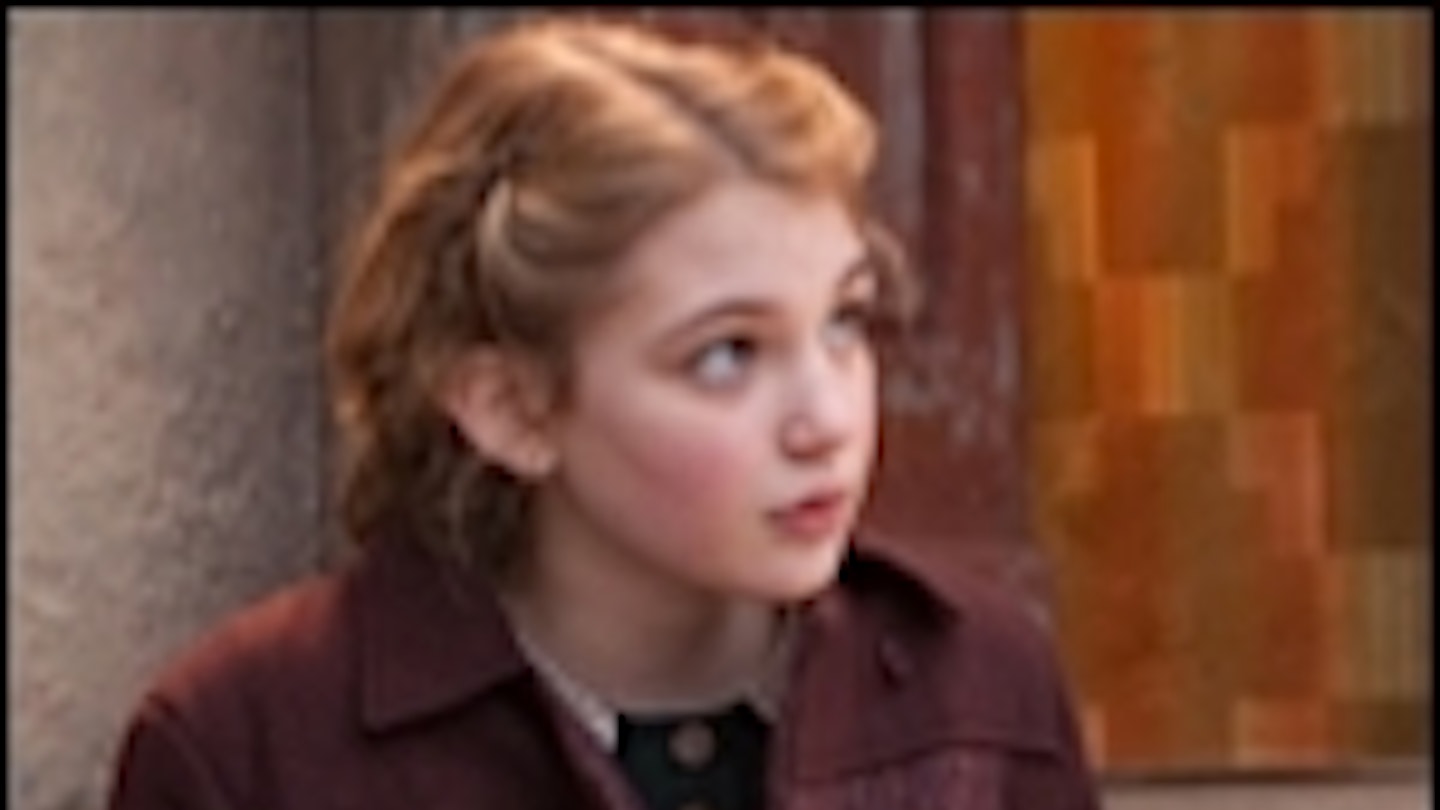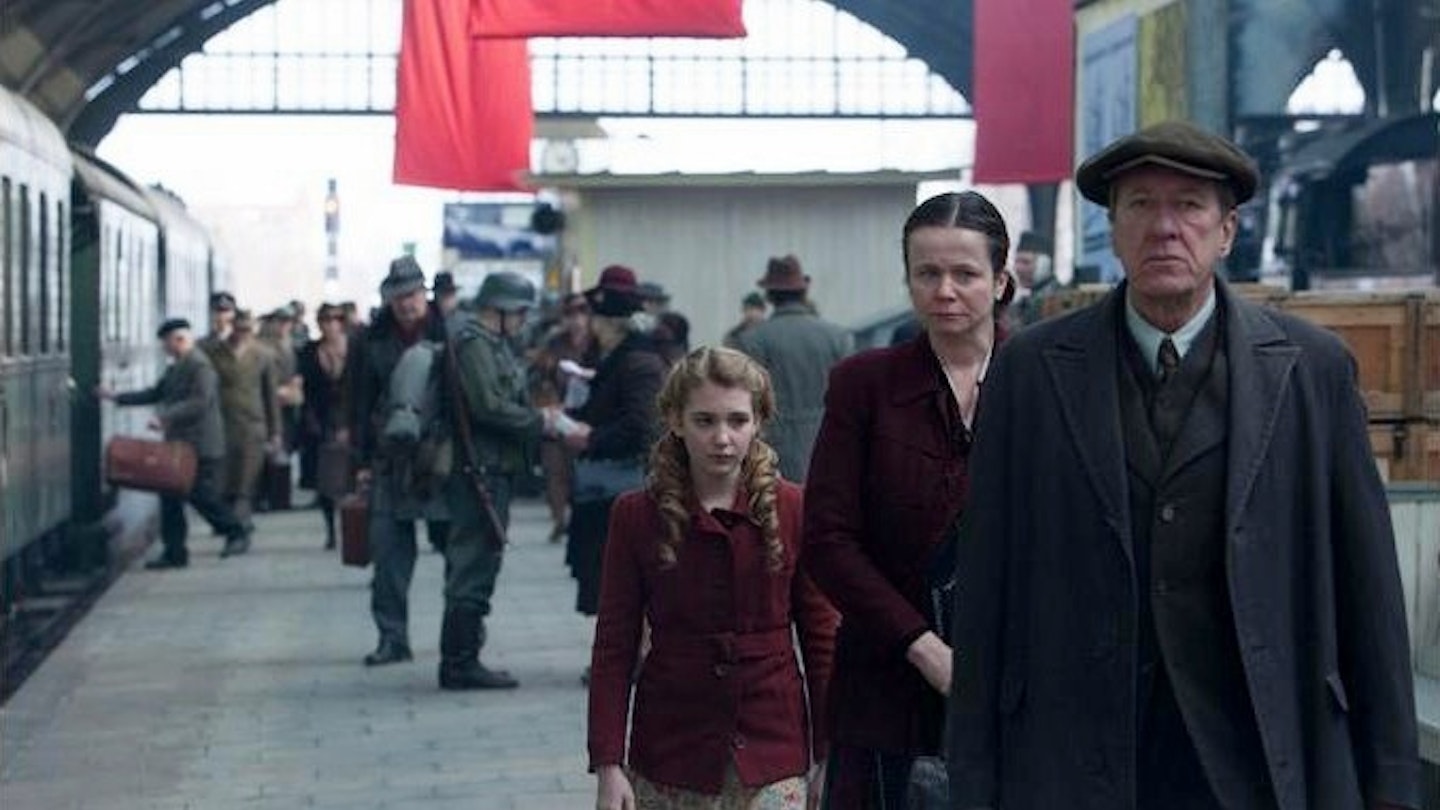What happens to movies primarily positioned and designed to find favour in awards season that don’t quite make the grade? The Book Thief must have looked good for gongs on paper: based on an acclaimed populist novel (by Markus Zusak), historically significant subject matter (World War II) and strong acting credentials (Geoffrey Rush, Emily Watson) all pointed to a night of glory on March 2. But Brian Percival’s film, while engaging and handsome, doesn’t quite have the depth or fizz to take its place among the Gravitys and 12 Years A Slaves.
The USP of Zusak’s novel is that the story of young Liesel Meminger (Sophie Nélisse), and the residents of the ironically named Heaven Street in war-torn Germany, is narrated by Death. Here represented by a Roger Allam voiceover and some rolling clouds, an approach that doesn’t quite fly. Instead, the film’s episodic storytelling introduces us in slow-ish, deliberate strokes, and is better at the illiterate Liesel’s growing passion for words and evincing her attempts to comprehend the incomprehensible, from book burnings to the way neighbourhoods get divided through blind obedience and fear.
Percival, best known for marshalling the upstairs/downstairs of Downton Abbey, invests the events with a similar elegance and élan, but its tasteful restraint is part of the problem. It lacks the grit and the grime of truth, the nicely mounted set-pieces — a decidedly un-suspenseful Nazi house-to-house search, a child in an icy river — never getting the heart pumping, the dynamics and relationships failing to engage the emotions.
Still, Percival gets good value from his cast. If not one of those child actors who blows you away, Nélisse captures both a sense of loneliness and resilience. She has strong scenes with Rush, who gets a rare chance to embody an ordinary, decent man — he is the heart and humour of the picture.





